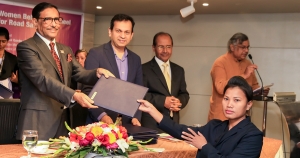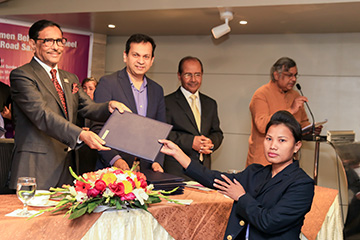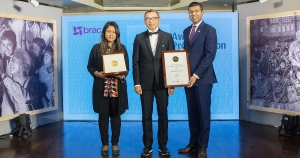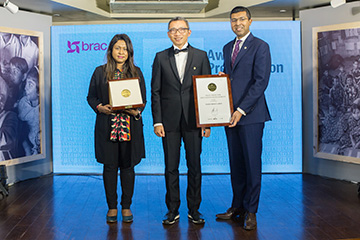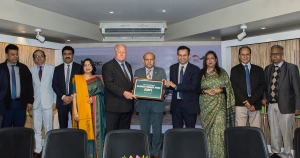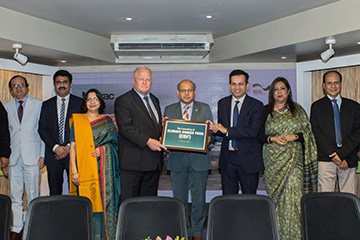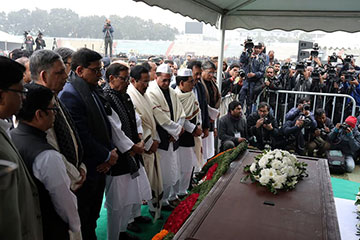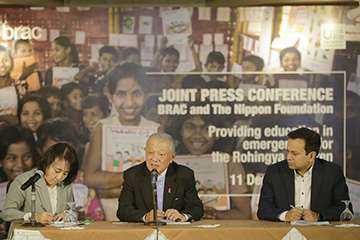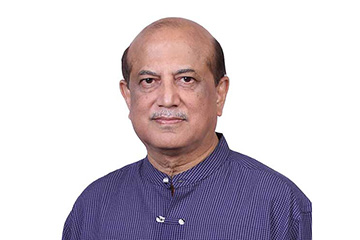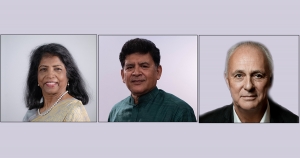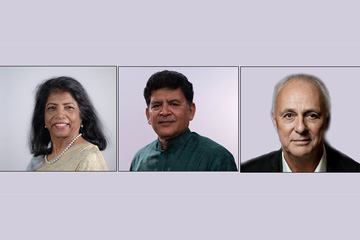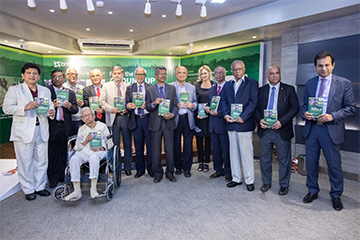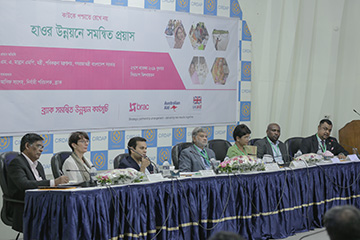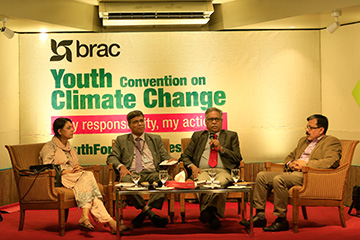
BRAC
Women behind the wheel for road safety
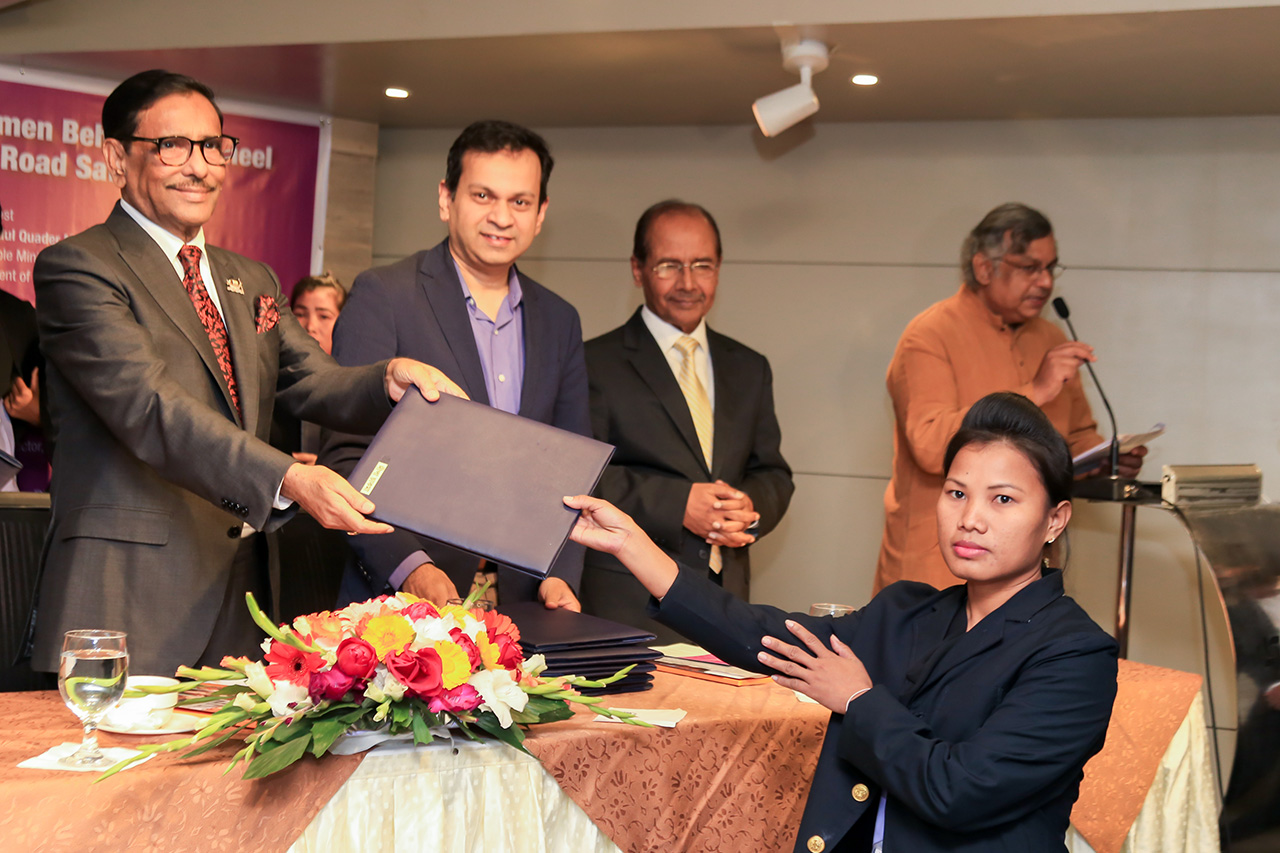
Mr Obaidul Quader, Minister of Road Transport and Bridges, said, “Women drive vehicles abiding by the rules and in a calm manner. They are usually not substance abusers. They do not talk on mobile phones while driving. So the more women will be appointed as professional drivers, the lesser will be the risks of road accidents.”
The minister’s comment came today on Saturday (25 January) as he was addressing an audience as the chief guest of a ceremony to hand out certificates to women who successfully completed a course at BRAC Driving School in Dhaka city. Ms Kazi Rowshan Akhter, Secretary of the Ministry of Women and Children’s Affairs, attended the event titled ‘Women behind the wheel for road safety’ as special guest. Mr Asif Saleh, executive director of BRAC, chaired the ceremony.
BRAC’s initiative to train women as professional drivers to promote both road safety and women-friendly commuting system has drawn praise at home and abroad. This ceremony was organised for the 8th batch of learners in which 11 women enrolled and all of them passed and received driving licences. The 3-month training was conducted at BRAC Learning Centre at Uttara in the capital.
The ceremony began with one-minute silence paying tribute to the memory of BRAC’s founder Sir Fazle Hasan Abed. The main event started with a presentation titled ‘Women behind the wheel for road safety’ by Mr Ahmed Najmul Hussain, director of BRAC Administration and Road Safety Programme. According to the presentation, BRAC started its driving school in 2011, mainly to train people from disadvantaged families to produce skilled and quality professional vehicle drivers. Its 3-month residential course curriculum includes basic driving skills, safe driving techniques, basic repairs skills and professional conduct.
Mr Obaidul Quader further said in his speech, “We want other institutions to come forward to help women gain self-dependence. The aim of these initiatives will simply go in vain if women fail to get jobs even after successfully completing such several-month long courses. So both the government and private sectors have to clear their way to recruit women drivers. The government will consider this issue with more importance from now on.”
Kazi Rowshan Akhter in her secretary’s speech said, “It is also from a BRAC’s research we have learned that 94 percent women public transport users face one or other kind of sexual harassment. Women drivers in our country also deal with many kinds of challenges. We have to join hands in finding the roots of those challenges as well as the solutions.”
Ms Mercy Miyang Tembon, country representative of World Bank for Bangladesh and Bhutan, noted writer and researcher Mr Syed Abul Maksud, BRAC’s director Ms Anna Minj and representatives from Gono Shasthya Kendra, Nirapad Sarak Chai movement and road transport owners association were also present at the event.
Organisers further said BRAC Driving School so far trained 7,388 individuals in basic driving among which 1,973 are women. It trained 10,373 in professional driving of which 214 are women. A total of 599 women received training in motorbike driving. A large number of graduates from the BRAC Driving School are successfully working for different local, international and corporate organisations.
Since 2011, under BRAC’s community road safety awareness programme, over 1.2 million people have received training on safe use of roads. Also 5,451 schoolteachers and 498,000 schoolchildren received special awareness training on safe road use.
BRAC’s executive director Mr Asif Saleh in his chair’s speech said, “BRAC is considering taking its driving training school to every division and district of the country. BRAC also wants to establish a road safety institute. BRAC will continue its collaborative work with the government in future to ensure road safety, particularly to create a women-friendly road and transport system.”
Dr Charles Chen Yidan, Founder of Yidan Prize, presents the prestigious award to Sir Fazle's family in Dhaka, Bangladesh

(23 January 2020, Dhaka) Dr Charles Chen Yidan, founder of the Yidan Prize, visited Dhaka, Bangladesh, this week to present the prestigious award. Ms Tamara Abed and Mr Shameran Abed, children of Sir Fazle Hasan Abed, accepted the award on his behalf at BRAC head office in Dhaka.
Dr Yidan presented the gold medal of the award to Ms Tamara Abed, his daughter and also the managing director of BRAC Enterprises and chairperson of the board of trustees of BRAC University. The certificate of the award was presented to Mr Shameran Abed, his son and also the senior director of BRAC Microfinance and Ultra-Poor Graduation Programme, at a ceremony organised on this occasion.
Sir Fazle was awarded the Yidan Prize for Education Development for his groundbreaking work on education in September 2019. During a visit to Sir Fazle in October 2019, the Yidan Prize Foundation learned directly from this iconic figure in international development about his visionary approach and pivotal role in changing the course of education in Bangladesh.
After Sir Fazle’s passing on 20 December 2019, Dr Charles Chen Yidan decided to visit Dhaka to pay his respect and present the award in person to his family. He also visited a BRAC school in the Korail slum in Banani and an early childhood development (ECD) centre - Play Lab in Banasree during his two-day visit to the city.
“Sir Fazle lived a life of service with true compassion, courage and conviction. He inspired everyone around him to choose optimism over despair and to believe in the potential of the human spirit. I believe that Sir Fazle will continue to be a source of inspiration for the world. The hundreds of millions of lives he transformed, especially those from the most vulnerable and poorest communities, will remember him as the spark of hope. The Yidan Prize Foundation will continue to work closely with BRAC to further scale up impactful educational programmes in Asia, Africa and beyond. Together, we can continue to help young, marginalised children find joy in their learning, and that those deprived of resources live happy and productive lives,” Dr Charles Chen Yidan said at the award ceremony.
Mr Shameran Abed read out the acceptance speech Sir Fazle drafted last year after the announcement of the prize.
“I would like to express my gratitude for the recognition bestowed upon both BRAC and me. The very generous Yidan Prize funding will allow us to expand our education activities further. I believe that education is the greatest equaliser. I envision a world where even the poorest among us have the opportunity to lead lives of purpose and dignity. I humbly request everyone to play their part in making this vision a reality,” Sir Fazle drafted in the speech.
“We are most honoured to receive the Yidan Prize on behalf of our father,” said Ms Tamara Abed. “We are committed to carry his legacy forward,” she added.
Sir Fazle always viewed education as a crucial catalyst for change. He firmly believed that it is about more than just schools and books. Play-based joyful learning is a cornerstone of BRAC's approach. BRAC has set up more than 1,400 play-based early childhood development centres across Bangladesh, Tanzania and Uganda, where close to 40,000 children aged 1 to 5 years are presently enrolled. In these centres pre-school children have access to age-appropriate play materials, a play-based curriculum and play spaces that ensure their holistic development.
As a Yidan Prize Laureate, Sir Fazle received a gold medal, a certificate and HK$30 million (around US$3.9 million), half of which is a cash prize and the other half a project fund.
“Addressing the needs of children in the most disadvantaged communities has always been a core priority for BRAC. The Yidan prize will support us in scaling up our play-based early childhood development solutions in Uganda and Tanzania and develop a new model of play-based childcare in Bangladesh”, Mr Asif Saleh, executive director of BRAC, commented.
The Yidan Prize project funding (approximately US$2 million) will be invested by BRAC in research, innovation and scaling up high-impact solutions related to early childhood development in the next three years. BRAC will also use part of the project fund to pilot a social enterprise of play-based childcare model in Bangladesh.
About the Yidan Prize
Founded in 2016, by Dr Charles Chen Yidan, a core founder of Tencent, the Yidan Prize has a mission of creating a better world through education. It consists of two awards, the Yidan Prize for Education Research and the Yidan Prize for Education Development. Yidan Prize Laureates each receives a gold medal and certificate, and a total sum of HK$30 million (around US$3.9 million), half of which is a cash prize while the other half is a project fund. To ensure transparency and sustainability, the prize is managed by the Yidan Prize Foundation and governed by an independent trust with an endowment of HK$2.5 billion (around US$323 million). Through a series of initiatives, the prize aims to establish a platform for the global community to engage in conversations around education and to play a role in education philanthropy.
About BRAC
BRAC is a global leader in developing cost-effective, evidence-based programmes, and has been ranked the #1 NGO in the world for the last four years consecutively by NGO Advisor. BRAC’s vision is a world free from all forms of exploitation and discrimination where everyone has the opportunity to realise their potential. Founded in Bangladesh in 1972, BRAC acts as a catalyst, creating opportunities for people to transform their lives. BRAC uses an integrated model to change systems of inequity, through social development programmes, humanitarian response, social enterprises, socially responsible investments and a university. BRAC operates in 11 countries across Asia and Africa.
BRAC and KfW jointly launch the 'Climate Bridge Fund'
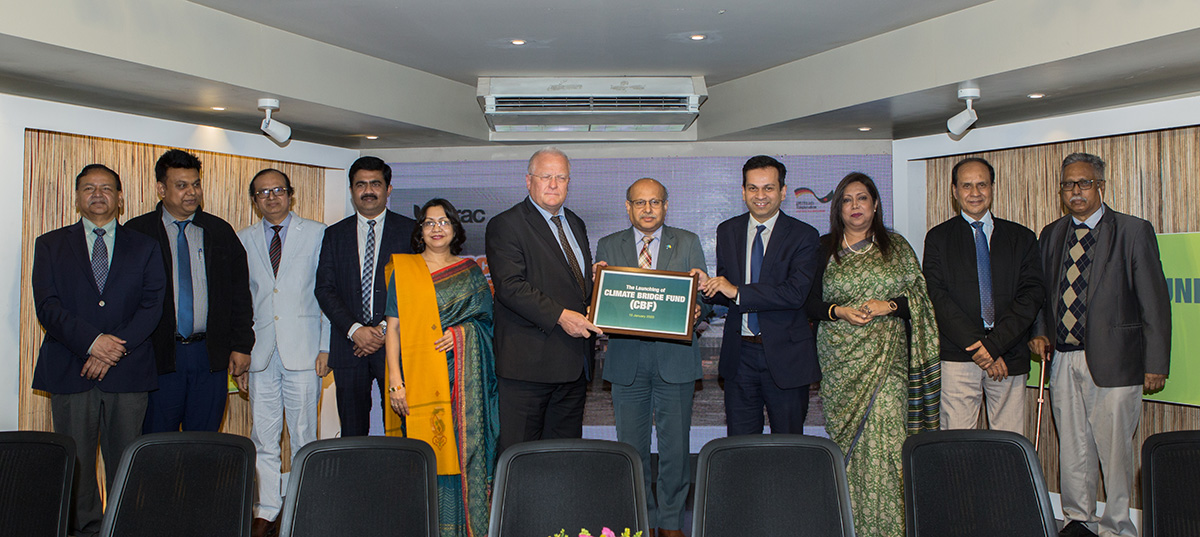
BRAC and the German Development Bank (KfW), on behalf of the German Government have jointly launched a trust fund titled 'Climate Bridge Fund' on 15 January 2020, with an initial amount of 11.735 million Euro.
The 'Climate Bridge Fund' has been developed through a collaboration between the two organisations with the objective of strengthening the resilience of climate vulnerable communities in Bangladesh. The Fund was initiated in November 2019, and is now ready to start its activities.
At the core of the 'Climate Bridge Fund' activities will be vulnerable people in urban areas who are either displaced or at risk of being displaced due to the impacts of climate change. In the beginning, the Climate Bridge Fund will concentrate its support to vulnerable communities in Khulna, Barishal, Rajshahi, Satkhira and Sirajganj.
The individual projects will be undertaken by NGOs with expertise in urban slum areas which can apply for funding at the Climate Bridge Fund. Within a defined budget limit, BRAC will also implement projects with the funding of the Fund.
As the chair of the launching event; Asif Saleh, Executive Director, BRAC, said “Climate change is a critical challenge globally, and this will be the key focus of BRAC for the next five years. This fund is a unique initiative for Bangladesh which will encourage and enable sustainable operations as well as scaling up of traditional development projects into climate change projects”.
The launching event was held at the city's BRAC Centre Inn, where several high government officials, as well as members from different national and International NGOs and donor communities were present.
While addressing the event, Anirban Kundu, Country Director, KfW Development Bank said, 'KfW is proud to establish the Climate Bridge Fund together with BRAC. It is going to provide long term financing gaps in local level adaptations in urban areas'.
According to Comprehensive Disaster Management Programme (CDMP II) 2014, one in every seven people in Bangladesh will be displaced due to climate change by 2050.
Many urban centres across the country will experience the challenges of a growing population due to climate-induced migration. People in rural areas, especially those living in poverty, will experience livelihood crises due to the adverse effects of climate change on natural resources and ecosystems. There is a significant statistical relationship between outmigration of farmers and global temperature, it reads.
The 7th Five Year Plan (7FYP) of the Government of Bangladesh states that the number of urban slums and people living in them will increase due to internal migration. This rapid inflow of migrants into slums will create a pressure of additional demands on basic services - employment opportunities, housing, water supply and sanitation, health, education, drainage and other infrastructure and facilities in all urban centres. These centres include Khulna, Barishal, Rajshahi, Satkhira and Sirajganj.
Regarding reducing the vulnerability of climate-induced displaced communities, H.E. Peter Fahrenholtz, Ambassador, Embassy of the Federal Republic of Germany said, 'Germany is committed to continue financing adaptation in LDCs and Emerging Countries.'
The life and livelihoods of people living in urban slums are becoming even more vulnerable without access to these basic services and exposure to various hazards - floods, waterlogging, heat waves, cold waves, droughts, cyclones and storm surges, salinity intrusion in ground/surface water, drainage congestion, and outbreaks of climate sensitive diseases.
Sir Fazle Hasan Abed laid to rest: His life was an incredible gift to humanity
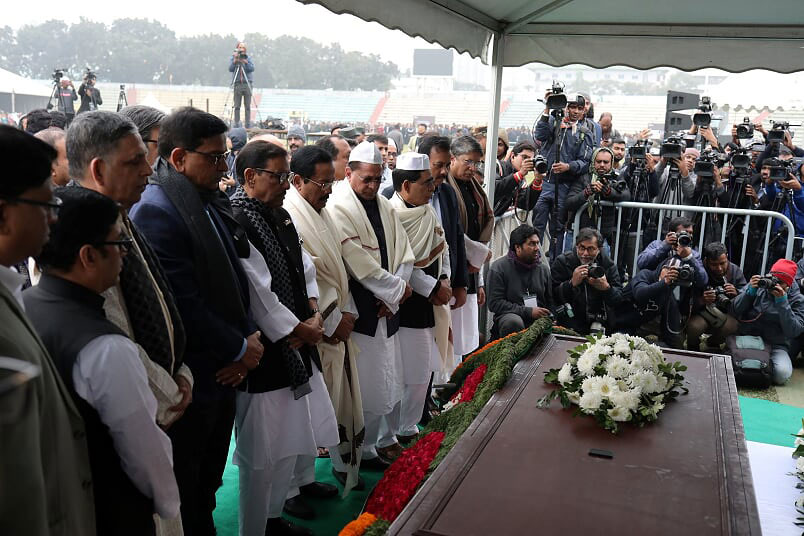
The founder of BRAC, Sir Fazle Hasan Abed has been laid to rest today, Sunday, 22 December 2019 at the Banani graveyard in Dhaka city. Thousands of people from all walks of life paid their last tributes and participated in his Namaz-e Janaza prior to the burial.
People began to gather from the morning at the Army Stadium premises. The vehicle carrying Sir Fazle's body arrived at 10.30am. Major Ashiqur Rahman, private secretary to military secretary to the Honourable President, and Colonel Md Saif Ullah PSC, deputy military secretary to the Honourable Prime Minister, placed wreaths at the coffin on behalf of the head of state and head of government respectively.
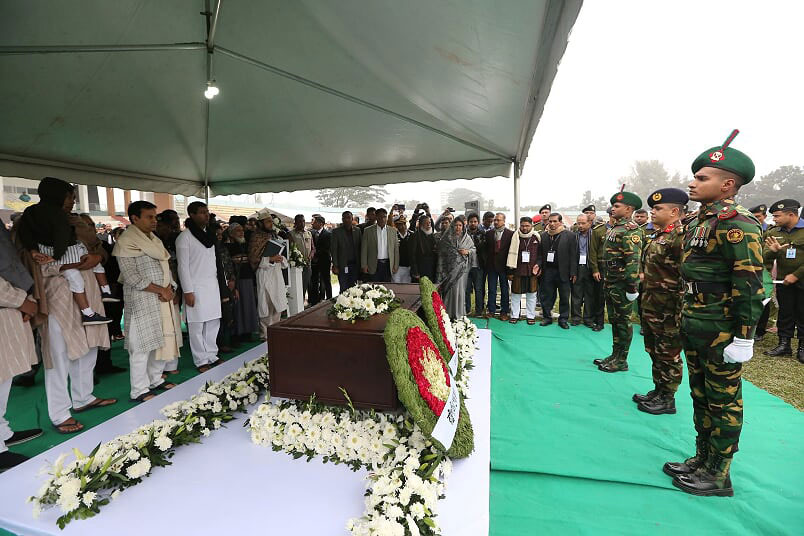
Immediately after, Dr Shirin Sharmin Chaudhury, Honourable Speaker, and Fazle Rabbi Miah, Honourable Deputy Speaker of National Parliament paid their tributes, followed by Chief Election Commissioner KM Nurul Huda.
Obaidul Quader, Honourable Minister for Road Transport and Bridges and General Secretary of Bangladesh Awami League, led a group on behalf of his party in paying homage. The group included central leaders, among whom were party joint general secretary Mahbubul Alam Hanif, senior leaders Jahangir Kabir Nanak and AFM Bahauddin Nasim and Jubo League Chairman Sheikh Fazle Shams Parash.
Mirza Fakhrul Islam Alamgir, General Secretary, BNP, accompanied by senior leader Amir Khasru Mahmud Chowdhury and others paid homage on behalf of the party. Rashed Khan Menon, President, Workers' Party of Bangladesh, Shirin Akhter, General Secretary, Jatiya Samajtantrik Dal, Anisul Islam Mahmud, lawmaker from Jatiya Party placed wreaths on behalf of their respective political organisations.
Dignitaries also spoke to the media about Sir Fazle as they paid their last tributes.
Obaidul Quader, General Secretary of Bangladesh Awami League:
“He has left behind an irreplaceable gap. He can only be compared to himself. Sir Fazle Hasan Abed had always been one to avoid the spotlight. He spread various social interventions across every level of society in silence and humility. BRAC's programmes have spread to every corner of Bangladesh and even beyond. He established many kinds of organisations that have been working to the benefit of the grassroots people. His contributions will last forever. The nation will forever remember in respect.”
Mirza Fakhrul Islam Alamgir, General Secretary, BNP:
“Sir Fazle Hasan Abed will forever live in the golden memory of people for his great contributions to change the world, particularly in establishing the rights of women.”
Professor Muhammad Yunus, Founder, Grameen Bank:
“He was the kind of person who was not an expert but still went on to do incredible work from sheer willpower. There is a great lesson there for the younger generation. I would implore the youth of today to take these lessons and learn to stand tall through the trials of life.”
Dr Anisuzzaman, Professor Emeritus, University of Dhaka:
“My friendship with Fazle Hasan Abed goes back to the year of 1972. I have closely observed his work. When he started his relief organisation in 1972, we never thought his efforts will spread all over the world. There was immense dedication in him. Every work that he took on, he made sure to complete it with beautiful perfection.”
Atiqul Islam, Mayor, Dhaka North City Corporation:
“Before he went to do anything, he first understood the whole of it, he went to the field and made sure that things were implemented just according to the plan.”
Earl R Miller, U.S. Ambassador to Bangladesh:
“He helped raise people out of poverty, inspired and improved the lives of millions of people not in Bangladesh only, but around the world.”
Jamilur Reza Choudhury, Professor
“He would invite the best of teachers, those who would be able to advise him the best. There is a saying, small is beautiful. He added to it: ‘Large is essential.’ Remaining small isn’t enough - expansion is needed. He applied this model everywhere.”
Sara Zaker, Theatre Actor and Executive Vice Chairperson, Asiatic Experiential Marketing Ltd:
“His door was open whenever I went to him for advice. He was a people’s man. I have never worked at BRAC but have been involved in some of their activities. I want to remember him as Abed bhai as I have always known him. Bangladesh has lost an irreplaceable asset.”
Other dignitaries, government officials, local and international organisations who were present:
Government organisations and present and former government officials
Salman F Rahman, Political Adviser to the Prime Minister; Tawfiq-e-Elahi Chowdhury, Energy Adviser to the Prime Minister; Md Shahab Uddin, Minister for Environment and Forest; Microcredit Regulatory Authority; ATM Shamsul Huda, former chief election commissioner.
Political leaders
Dr Kamal Hossain, eminent lawyer and politician; Enam Ahmed Chowdhury, senior Awami League leader; Sheikh Fazle Noor Taposh MP; Akbar Ali Khan and AB Mirza Azizul Islam, former advisers to Caretaker Government; Abul Maal Abdul Muhith, former finance minister Bangladesh Chhatra League Dhaka University branch.
Ambassadors
Ambassadors of Spain and USA to Bangladesh.
International organisations
International Rice Research Institute (IRRI), UNDP, UNICEF, UN Bangladesh.
NGOs and corporates
Dr Zafrullah Chowdhury, founder of Gonoshasthaya Kendra; Rasheda K Chowdhury, Chairperson Gono Shakkhorota Ovijan; Shipa Hafiza, Executive Director, Ain o Shalish Kendra; Aroma Dutta MP, Executive Director, PRIP Trust; UCEP Bangladesh; CARE; Proshika; TMSS; Safer World; Dustho Shasthya Kendra; BURO Bangladesh; Badiul Alam Majumder, Secretary, SHUJAN; Federation of NGOs in Bangladesh (FNB); CDF; Action Bangladesh; Oxfam; ALRD; VARC; Maya website; ASA; Ubinig and Nari Grantha Prabartana; Concern Worldwide; Shakti Foundation; Bastab; Grameen Phone.
Social organisations, intellectuals, artist, writers
Abul Khair Litu on behalf of Gyantaposh Abdur Razzaq Foundation; Luva Nahid Chowdhury on behalf Bengal Foundation; Bangladesh Sthapati Institute; Monirul Islam and Hashem Khan, eminent painters; Shahidul Alam, eminent photographer and founder of Drik; Liberation War Museum; Bangmoy.
BRAC family
Professor Mohammad Tamim, BRAC University Pro-Vice Chancellor; Ahsan H Monsur, Chairman, BRAC Bank; BRAC Net; IPDC; Guardian Life Insurance; Bkash; Baniachang Aysha Abed Foundation.
The Namaz-e Janaza was held at 12.30pm led by Moulana Ahsanullah, Imam of Gulshan Central Mosque.
His body was taken to Banani graveyard afterwards, where another Namaz-e Janaza was held. He was laid to rest at 2.30pm.
Earlier in the morning, Sir Fazle's body was taken to BRAC Centre, his long-time workplace. His relatives and colleagues paid respects to him and participated in his first Namaz-e Janaza on the office premises at 9.45am. Afterwards, his body was taken to the Army Stadium.
Books of condolences
A book of condolence in memory of Sir Fazle was opened at 2pm on Sunday at BRAC Centre. From Monday, 23 December, books of condolences will be open at Aarong outlets, BRAC Bank offices and BRAC University. From Tuesday, 24 December, books of condolences will be open at all BRAC regional offices. All the condolence books will remain open from 10am to 5pm until 30 January, 2020.
Nippon Foundation donates USD 2 million to BRAC
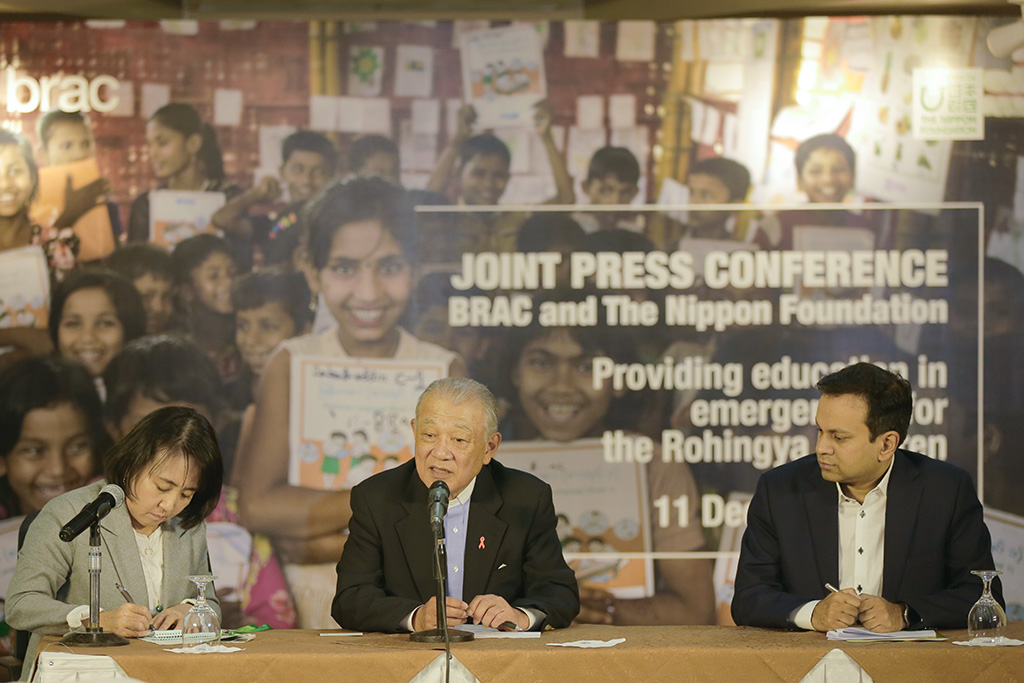
The Nippon Foundation, a Japanese private non-profit organisation, will donate USD 2 million (over BDT 169 million) for BRAC to scale up its education programme for the displaced Rohingya and host communities’ children in Cox's Bazar. The grant will help build 50 two-story prefabricated movable steel structures to be used as learning centres for 8,000 displaced Rohingya children. Besides, 100 pre-primary learning centres will also be built for the host community’s children.
BRAC and The Nippon Foundation announced the partnership at a press conference today on Wednesday (11 December) at BRAC Centre in Dhaka city. Chairman of The Nippon Foundation, Yohei Sasakawa, Executive Director of BRAC, Asif Saleh, Director of BRAC Education Programme, Dr Safiqul Islam, officials of the two organisations and Japanese Embassy in Bangladesh were present at the event.
Chairman Yohei Sasakawa said, "The objective of our initiative is to create education opportunities for the displaced Rohingya children so that they can also learn alongside the host community’s children. We hope that the displaced Rohingya children will be able to continue learning as they return to their homeland."
BRAC’s Executive Director Asif Saleh said, "55 per cent of the people who came from Myanmar are children. So we are focusing on their education."
Officials of BRAC informed the press that right from the beginning of the new influx of the displaced Rohingya people into Bangladesh in 2017, BRAC undertook the education programme for their children as the largest partner of the government in this regard. The learning curriculum for the displaced Rohingya children includes pre-primary education, alphabets and numbers, life-saving information, psychological counselling and life skills development. BRAC is also developing education materials for classes I-IV for the displaced Rohingya children.
Currently, over 61,000 children of 4-14 years of age are receiving basic education in its 759 learning centres at the Rohingya camps in Ukhya and Teknaf sub districts of Cox's Bazar. Fifty-one per cent of these children are girls. 722 children are disabled among them. Also, 57 per cent members of the managing committees of these learning centres are women.
The separate 100 pre-primary learning centres BRAC will build with The Nippon Foundation's support will accommodate 3,000 host community children of 5-6 years of age.
Professor Mushtaque Chowdhury made adviser to FAO
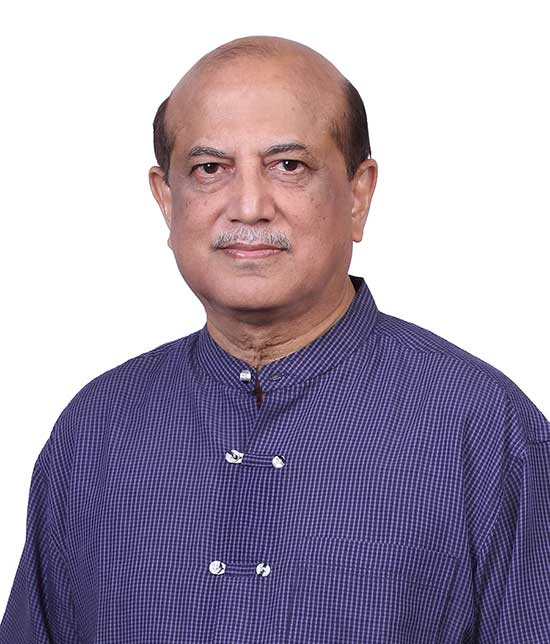
Professor Mushtaque Chowdhury, Advisor and Founding Dean of the BRAC James P Grant School of Public Health, BRAC University, has been made a member of the Management Advisory Group for the Director General of the UN Food and Agricultural Organization (FAO) in Rome. In a recent letter to Dr Chowdhury, Dr Qu Dongyu, the new Director General of FAO, said, “I will count on your frank advice and positive feedback in supporting FAO to further strengthen its activities in assisting countries to realise the potential of their agriculture and food systems. Together, we will work to create a more prosperous world for all. Your experience and insight will contribute greatly to this joint effort”. FAO is a specialised agency of the United Nations that leads international efforts to defeat hunger.
Dr Chowdhury is also a Professor of Population and Family Health of Columbia University in New York. He is a Senior Fellow of Bangladesh Institute of Development Studies (BIDS) and a Senior Adviser to the International Growth Centre of the London School of Economics. He made significant contributions to the academic sector by publishing over 200 scientific papers in different national and international journals. One of his co-edited books, ‘From the Ground Up: BRAC’s contributions to agricultural development in Bangladesh and beyond’, published by the University Press Limited, was formally launched in Dhaka last week.
BRAC scales up global goal to reach 250 million people by 2030: Global Board formed to support its roadmap
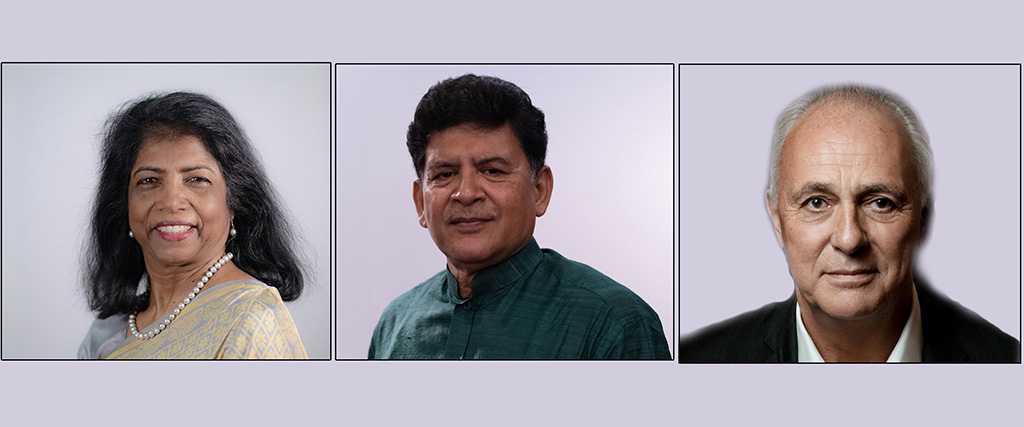
BRAC, one of the largest development organisations in the world, is pleased to announce that it is scaling up its global ambition to support the 2030 Agenda for Sustainable Development. BRAC aims to reach at least 250 million disadvantaged women (and their dependents), youth, and people living in poverty around the world, including Bangladesh, within the next 10 years.
BRAC Founder and Chair Emeritus Sir Fazle Hasan Abed said, “With the Sustainable Development Goals (SDGs), we made a commitment to the people of the world to eradicate extreme poverty by 2030. With 10 years to go to achieve the SDGs, we need to set in motion an accelerated path.”
He further said, “BRAC has always believed in creating impact at scale. Small is beautiful, but scale is needed for greater impact. With 47 years of experience in working with the people of Bangladesh and 17 years of international experience in Africa and Asia, BRAC is ready to collaborate on a global scale and to share our learning with public, private and non-governmental partners.”
BRAC’s global strategy outlines three priority goals: empowering at least 250 million people to have control over their own livelihoods; reaching at least 30% of the participants with multiple interventions; and leading innovation and the dissemination of learning in the development sector.
BRAC has formed a Global Board, with three initial members, to guide the implementation roadmap of its global strategy. The principal role of the BRAC Global Board will be to ensure that BRAC has the right strategy, resources and governance to support its vision.
There will be no other immediate change to BRAC’s existing Boards and governance structure. In future, the BRAC Global Board will review its activities and governance mechanisms, as needed, to consolidate BRAC’s unified global strength as ‘One BRAC’ in support of its vision.
The BRAC Global Board will be chaired by Ms Ameerah Haq, currently Chair of the Supervisory Board of Stichting BRAC International. Ms Haq is a former UN Under-Secretary-General for the Department of Field Support (2012-2014). She held the position of Under-Secretary-General from 2009 until her retirement and was the senior-most Bangladeshi national in the United Nations during those years.
Dr Hossain Zillur Rahman, currently Chairperson of the BRAC Bangladesh Board and a renowned academic, economist and policymaker, has been nominated as the Senior Trustee of the Global Board. Dr Rahman is a leading policy voice in Bangladesh and was an Advisor (Minister) for Commerce and Education in the Caretaker Government of Bangladesh in 2008. He is the Founder and Executive Chairman of the think-tank Power and Participation Research Centre (PPRC).
The third member of the Global Board is Lord Mark Malloch-Brown KCMG. Lord Malloch-Brown served as the Deputy Secretary-General and Chef-de-Cabinet of the UN under Kofi Annan. Before that, he was Administrator of UNDP, leading the UN’s development efforts around the world. He later served as a Minister of State in the Foreign Office, covering Africa and Asia, and sat in Gordon Brown’s cabinet.
Asif Saleh, Executive Director of BRAC and Dr Muhammad Musa, Executive Director, BRAC International welcomed the formation of the BRAC Global Board, marking it as an important step towards the worldwide scale-up of BRAC’s impact.
Founded in 1972 in Bangladesh, BRAC currently operates in eleven countries in Asia and Africa, reaching over 100 million people. The countries of its operations are: Bangladesh, Afghanistan, the Philippines, Nepal, Myanmar, Liberia, Sierra Leone, South Sudan, Tanzania, Uganda and Rwanda. Besides, BRAC’s ultra-poor graduation approach, an integrated model to address extreme poverty, has been adapted in more than 40 countries by NGOs, governments and multilateral institutions.
Quotes from the BRAC Global Board
Ms Ameerah Haq said, “It is a huge honour to serve as the Chair of the BRAC Global Board. I am very proud of the work that the entire BRAC family does as a truly purpose-driven organisation. We aim to effectively scale up our learning and proven approaches from the Global South to accelerate the achievement of the SDGs by 2030."
Dr Hossain Zillur Rahman said, "BRAC excels in finding community-led, innovative approaches to eradicate extreme poverty. I am proud to serve on its global Governing Body which will lead in up-scaling adaptive models in the most deprived communities of the world through the exchange of knowledge, empowerment of women and inclusion of the excluded."
Lord Mark Malloch-Brown KCMG said, "Now is the time to act together if we are to deliver on our promise of eradicating extreme poverty. BRAC’s effectiveness in solving complex social, economic and environmental challenges shows how much can be achieved through human ingenuity and listening and learning from our beneficiaries and local partners. I look forward to working with my eminent fellow Board members and the BRAC team across the globe to champion inclusive development, build partnerships and jointly advance our vision."
Book launch of 'From the Ground Up', featuring BRAC's work in agricultural development
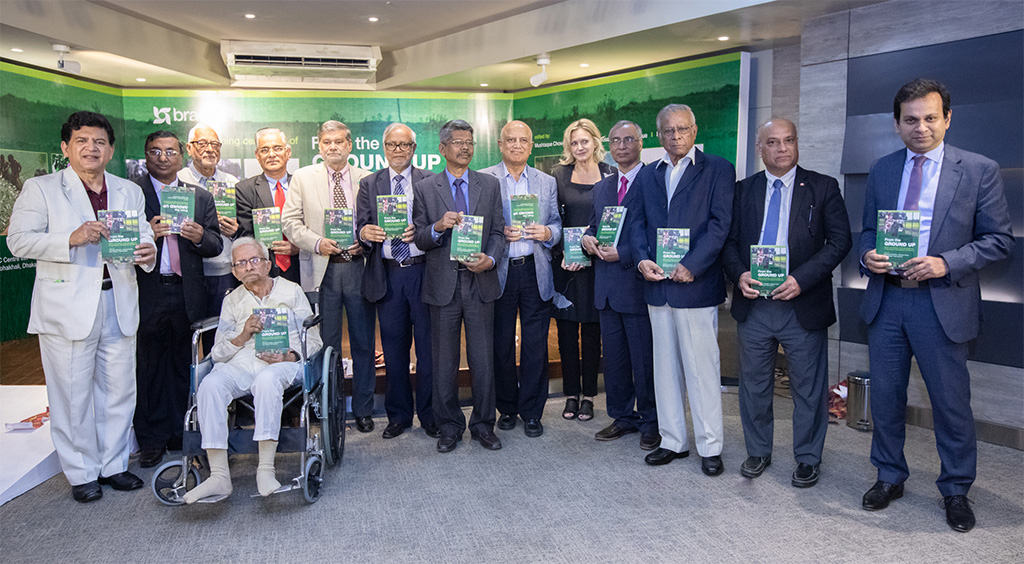
Planning Minister of Bangladesh and the chief guest, Muhammad Abdul Mannan said, "There was once a scarcity of food in Bangladesh, but not anymore, due to our agriculture. We must be vigilant in all possible agricultural cases" at the launch of the book ‘From the Ground Up: BRAC’s innovations in the development of agriculture in Bangladesh and Beyond’ at BRAC Centre Inn today.
The book is published by University Press Limited (UPL). It has been edited by Mushtaque Chowdhury, Muazzam Husain, Md A Saleque and Hugh Brammer. Chapters are written by Dr Jiban Krishna Biswas, Professor S D Chowdhury, Dr A K Fazlul Haque Bhuiyan, and Professor Md Saifuddin Shah. Mushtaque Chowdhury said “This book journals the significant contributions of BRAC in agriculture for the past 40 years.”
The special guests were National Emeritus Scientist and the former chairman of Bangladesh Agricultural Research Council Dr Kazi M Badruddoza, the senior secretary of the planning commission Dr Shamsul Alam, the secretary of the Ministry of Agriculture Md Nasiruzzaman, the advisor to former caretaker government and former secretary of the Ministry of Agriculture AMM Shawkat Ali and the director and founder of Channel I Shykh Seraj. Asif Saleh, the executive director of BRAC, opened the event with his remarks. “BRAC first brought the Amrapali mango to Bangladesh. Even small contributions lead to big results that is unknown to most people. The book highlights such contributions.”
BRAC chairperson Hossain Zillur Rahman, who chaired the event, remarked, “With Sir Fazle Hasan Abed’s guidance, there have been a lot of innovations in agriculture. Agriculture is not just a proud history for us, but also holds the key to a bright future.” Agricultural development was one of BRAC’s early interventions, which resulted in a direct impact on food security and poverty reduction in the country’s most vulnerable areas.
Elimination of extreme poverty needs essential collaboration from all concerned
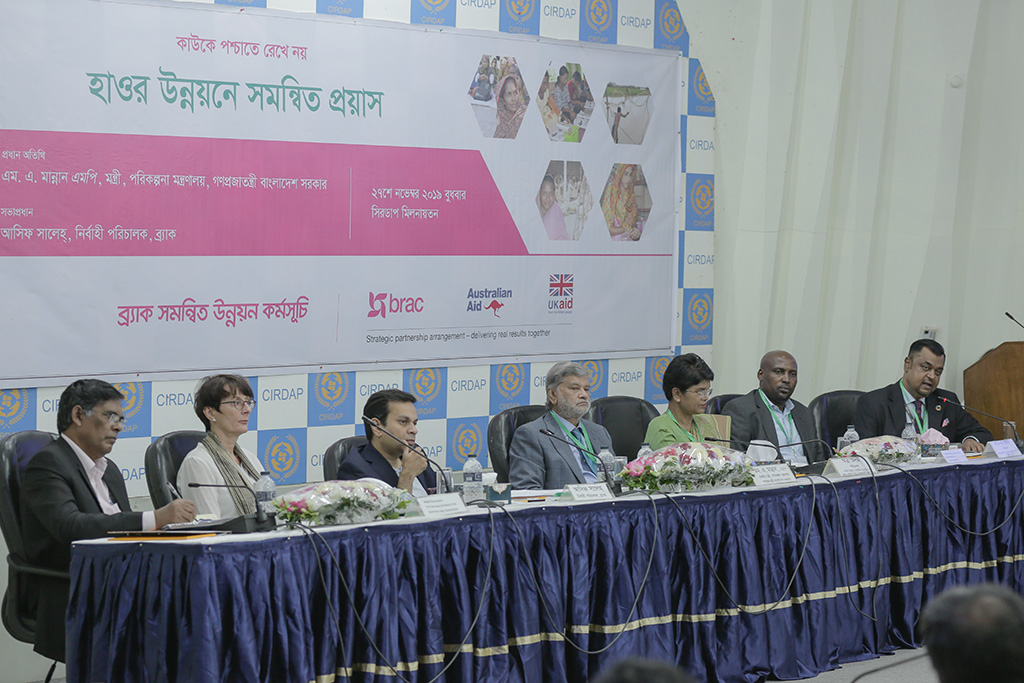
Planning minister MA Mannan said, "The main reasons for perpetuating poverty in the haors are injustice and discrimination. The influential and powerful elites who live in the cities are exploiting people in haor with illegal means. It's time to take stern action against them."
He also observed, "Elimination of extreme poverty from haors is difficult by any single organisation. It needs essential collaboration from all those concerned, in both public and private sectors." His views came at a national-level meeting BRAC organised on Wednesday, November 27, at the CIRDAP auditorium in the capital to exchange views on haor development.
Styled on the theme "Collaborative initiatives for haor development", the meeting was organised by BRAC's integrated development programme (IDP). BRAC’s executive director Asif Saleh presided over the event.
Designed especially for the haor region, the implementation of IDP began in 2013. With an integrated strategy of action, it formed 3,550 women-led village development organisations. Through these organisations, BRAC is implementing a series of programmes in the areas of education, healthcare, nutrition and water, sanitation and hygiene, preventing violence against women, improving living standards and alleviating ultra poverty through financial inclusion and information delivery. Currently, IDP is covering 900,000 people in four subdistricts of four haor regions - Baniachang of Habiganj, Dirai of Sunamganj, Itna of Kishoreganj and Khaliajuri of Netrokona.
In these four subdistricts, only 10 per cent of the families could access different essential services, while the coverage has increased to 75 per cent through IDP interventions. Since 2013, 96 per cent ultra-poor women who were covered by IDP graduated from extreme poverty. At the same time, sanitation coverage in the programme area has increased from previous 17 per cent to 72 per cent now. A total of 47,524 children are going to school, while 90 per cent of the inhabitants of the areas can access healthcare facilities. The programme participants also receive improved quality seeds, training on climate-resilient cultivation method, cattle and poultry vaccination, financial inclusion, family planning services, ante-natal and delivery care and information services.
A presentation was also given at the event on BRAC IDP's learnings from implementation of different initiatives in the haor. A special discussion titled "Future vision for integrated development in haor" followed, moderated by KAM Morshed, director, BRAC Advocacy for Social Change programme. Dr Ali Muhammad Omar Faruque, deputy secretary and deputy director, Department of Bangladesh Haor and Wetlands Development, Anna Minj, director, IDP, Community Empowerment Programme, and Gender Justice and Diversity Programme, Walter Mwasaa, chief of party, Souhardo-III of Care Bangladesh, Anjela Naumann, first secretary and head of aid, Australian High Commission, and Professor Siddiqur Rahman of Jahangir Nagar University, participated in the discussion, among others.
Discussants said the dwellers of the haor regions are troubled with multifarious setbacks. The regions suffer from regular natural calamities, perpetuating an intergenerational fear of instability. Their asset base of land, cattle and poultry and others is very low, while the natural disasters further strain whatever assets they have. Difficult physical communication prevents consistent and quality delivery of essential services including education, health and livelihood, causing perpetuation of poverty. The speakers said only a singular platform competently designed with custom-based services for haor areas can break through this chain of setbacks and bring development at the doorsteps of the haor inhabitants. They said to make that happen, all the government and private development bodies will have to act together.
They further observed that the government should increase the coverage of its social safety net programmes especially for haor areas. Opportunities for demand-based service delivery will also have to be much increased. To bring the haor people into the fold of mainstream development, well-designed, collaborative and integrated initiatives have to be taken for sustainably tackling natural disasters, creating employment opportunities and skilled manpower at the local level.
Sustainable living: Youth will lead the way
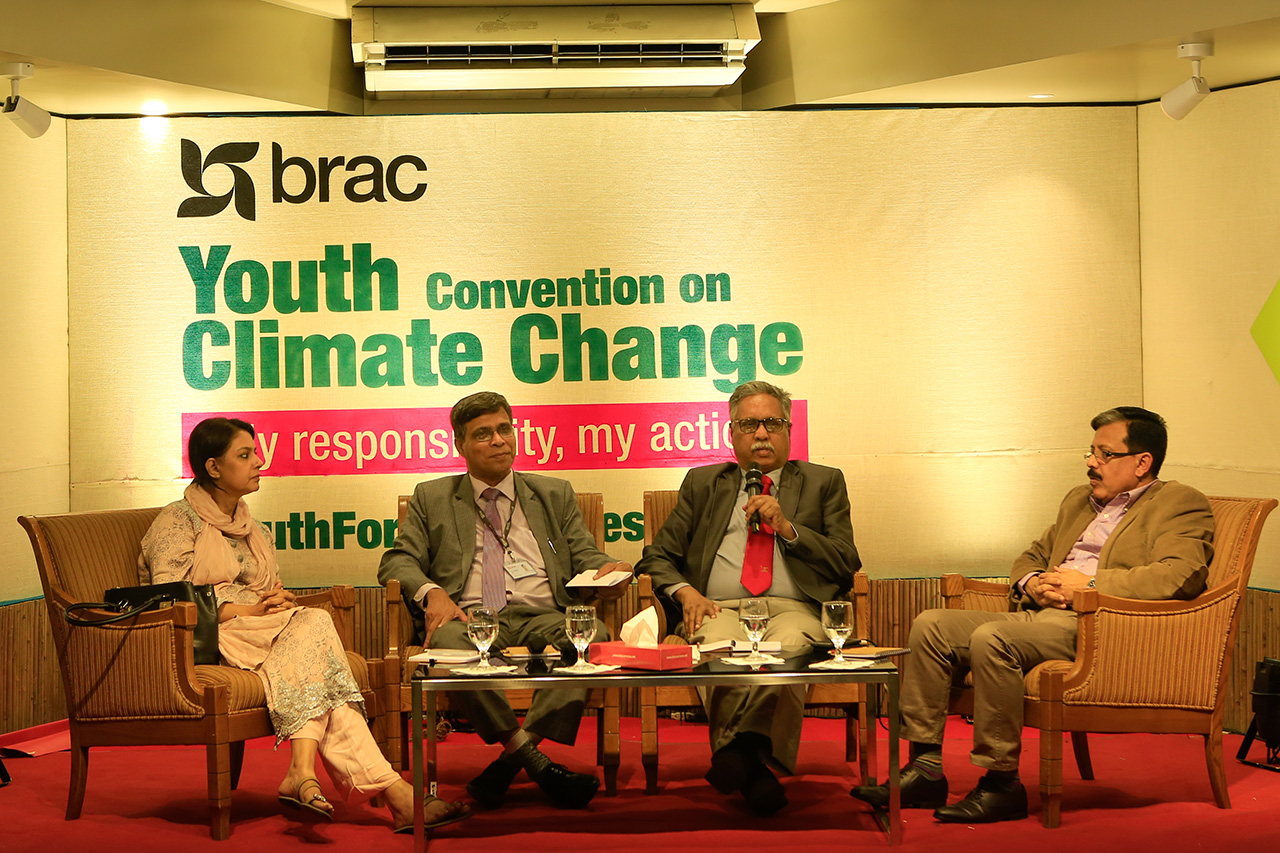
BRAC’s climate change programme organised an event titled "Youth convention on climate change" on Sunday, November 17, 2019, at BRAC Centre in the capital.
Thirty per cent of Bangladesh's population are youth who are already engaged in many different initiatives to promote and adopt sustainable solutions. A number of universities in the country have developed their own initiatives to address different climate change issues.
The youth will lead mankind in tackling the impacts of climate change. They will do it by spreading awareness on environment preservation and climate education, inspiring people about sustainable living and livelihoods, and adopting recyclable energy sources. The speakers expressed these views at the convention.
Dr Ainun Nishat, eminent environment expert, former vice-chancellor of BRAC University, and currently adviser to the Centre for Climate Change and Environmental Research, BRAC University, was present as the chief guest in the event. Dr SM Munjurul Hannan Khan, additional secretary to the environment, forest and climate change ministry, and Syeda Rizwana Hasan, executive director, Bangladesh Environmental Lawyers' Association, were present as special guests. Dr Md Liakath Ali, director of BRAC’s climate change programme, chaired the convention.
Students from eight public and private universities, namely Dhaka University, Jahangirnagar University, Bangladesh University of Professionals, BRAC University, North South University, United International University, Ahsanullah University of Science, and Independent University, Bangladesh, attended the convention. Only 10 per cent of these participants had attended any climate conference beforehand.
Dr Md Golam Rabbani, fellow, Bangladesh Centre for Advanced Studies, presented the keynote report on the impacts of climate change in Bangladesh. Mr Abu Sadat Moniruzzaman Khan, head of BRAC’s climate change programme gave an introduction to the event.
Speakers said the roadmap to address climate change impacts has already been prepared and the youth groups have now started its enthusiastic implementation.
Dr Ainun Nishat said, "Weather is increasingly becoming unpredictable. The seasons of autumn, late autumn and spring are disappearing. We have experienced heavy rainfall in October in which Rajshahi was flooded. On the other hand, you will not find enough water for jute retting. We started destroying the environment with the start of industrial revolution in 1860, and we began our account of destruction only in 1990. The less carbon dioxide and other harmful gases are emitted, the better for our earth."
Dr SM Munjurul Hannan Khan praised BRAC for its role in engaging young people in climate change actions, saying, "The industrially developed countries are spreading pollution and the entire planet has become its victim. Today children are born in an atmosphere that is four degrees Celsius warmer than that in which their parents were born. If this situation continues, the world will be in an unbearable condition by 2050, when 9.3 billion people will be living on earth."
Join the world’s biggest family

